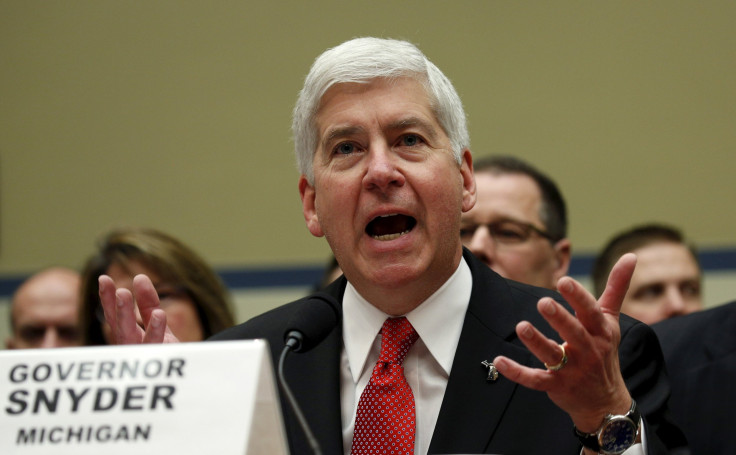Michigan State Officials Accountable In Flint Water Crisis: Inquiry

A task force appointed by Michigan’s governor said on Wednesday state officials showed stubbornness, lack of preparation, delay and inaction in failing to prevent a health crisis in the city of Flint caused by lead contamination in the drinking water.
There were failures on all levels of government, including the U.S. Environmental Protection Agency, a report from the task force said. However, the report highlighted failures of state agencies, especially the Michigan Department of Environmental Quality (MDEQ).
Gov. Rick Snyder has been criticized for the state’s poor handling of a crisis that garnered national headlines.
“It was a mixture of ignorance, incompetence and arrogance by many decision makers that created the toxic and tragic situation,” Chris Kolb, task force co-chair and president of the Michigan Environmental Council, a coalition of nonprofit groups, said at a press conference in Flint.
The 116-page report included 36 findings and 44 recommendations to be taken so the state can avoid a similar crisis in the future, including fixing the state emergency manager law to compensate for the loss of local government control.
Under the direction of a state-appointed emergency manager, Flint switched water supplies to the Flint River from Detroit’s system in 2014 to save money.
The corrosive river water leached lead, a toxic substance that can damage the nervous system, from the city’s water pipes. Flint switched back to the Detroit system last October.
The task force said MDEQ should receive primary blame for the crisis, citing its failure to use corrosion-control chemicals in Flint’s water system to prevent the lead leaching, and then resisting calls from others to take action after the lead poisoning was discovered.
“They missed the boat completely,” Kolb said.
Michigan this week outlined a plan involving several state agencies to help the city recover from the crisis. It included programs to address water infrastructure shortcomings and the health of children who have tested for high lead levels in their blood, expand support in Flint schools and boost economic development for the city.
The crisis has led to calls for Snyder to resign. Last week, several Democratic lawmakers criticized Snyder at a hearing about Flint, a working-class, mostly African-American city of 100,000 northwest of Detroit.
“This is a problem that I’ve made a commitment to fix,” Snyder said on Wednesday. Many of the task force recommendations were already being implemented by the state, he added.
© Copyright Thomson Reuters 2024. All rights reserved.











